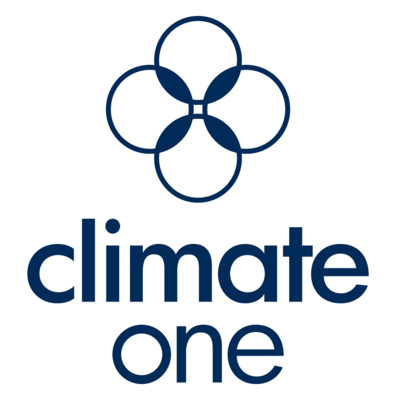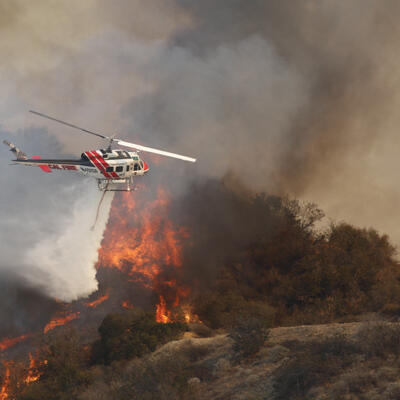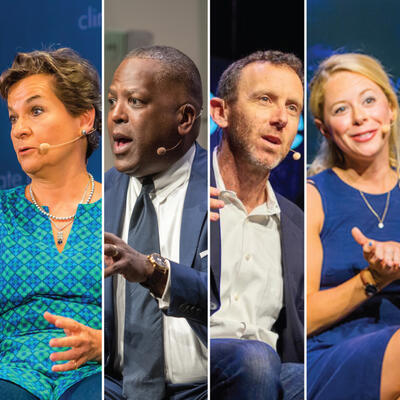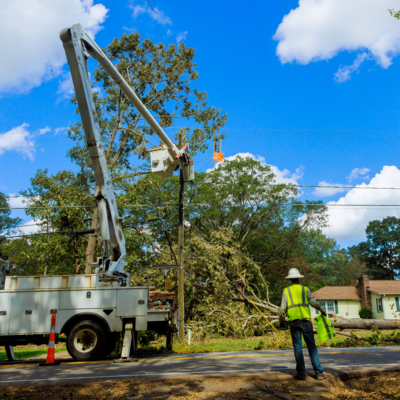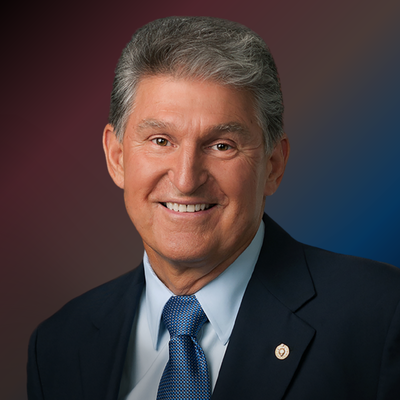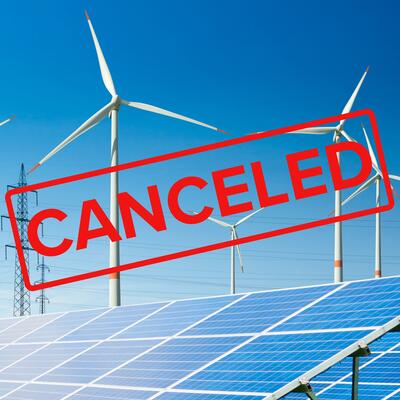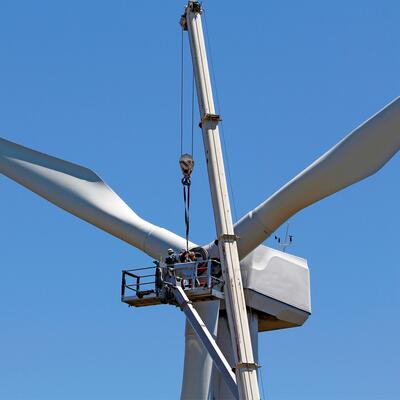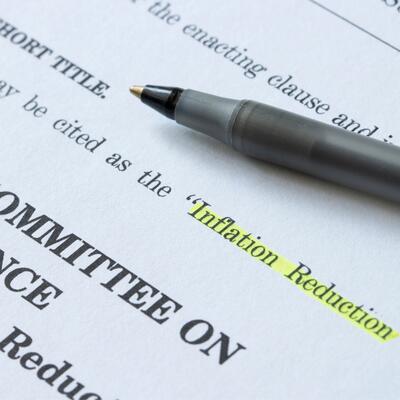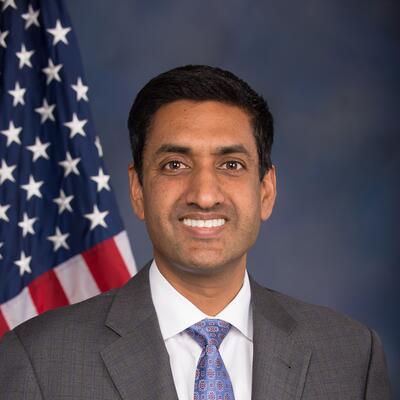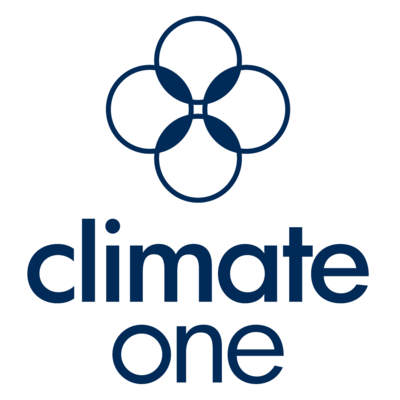
Chaos and Progress: A Year of Climate Conversations
Summary
It’s safe to say that 2017 was not been the best of times when it came to climate. Record-breaking hurricanes, year-round wildfires, and a renewed commitment to fossil fuels all contributed to a chaotic first year under the Trump administration.
Guests (in order of appearance):
Bob Inglis, Former Republican U.S. Representative, South Carolina
Jeremy Carl, Research Fellow, Hoover Institution, Stanford University
Debbie Dooley, Co-Founder, Tea Party Movement
May Boeve, Executive Director, 350.org
Jim Sweeney, Director, Precourt Energy Efficiency Center, Stanford
Amy Myers Jaffe, UC Davis Graduate School of Management
Al Gore, Former United States Vice President
Bonni Cohen, Filmmaker
Bill Nye, Television Host, Science Educator
Jane Goodall, Founder, Jane Goodall Institute
James Coleman, Student
Corina MacWilliams, Student
Ashlee Vance, Reporter, Bloomberg Businessweek
Emily Castor, Director of Transportation Policy, Lyft
Amory Lovins, Co-founder and Chief Scientist, Rocky Mountain Institute
Jen Regan, Chief Sustainability Manager, We Bring It On
Portions of this program were recorded in front of a live audience at the Commonwealth Club in San Francisco, CA.
Full Transcript
Announcer: This is Climate One, changing the conversation about energy, economy and the environment. It’s safe to say that 2017 has not been the best of times when it comes to climate.
Donald Trump: The United States will cease all implementation of the nonbinding Paris accord.
Announcer: But if we’ve learned anything this year at Climate One, it’s that now more than ever, climate solutions are all around us.
Debbie Dooley: I see a world where left and right come together for a green energy revolution that is enveloping our nation as we speak.
Emily Castor: Everyone sees this technology on the horizon perhaps coming even faster than we all would expect.
Bill Nye: Come on, man, let’s go! This’ll be cool! Let’s make changes!
Announcer: Chaos and Progress: A Year of Climate Conversations. Up next on Climate One.
Announcer: Welcome to Climate One – changing the conversation about America’s energy, economy and environment for more than 10 years. I’m Devon Strolovitch. Climate One conversations – with oil companies and environmentalists, Republicans and Democrats – are recorded before a live audience, and hosted by Greg Dalton.
On today’s show we look back at the climate stories of 2017 by listening to excerpts from a year of climate conversations. 2017 began, of course, in the aftershock of Donald Trump’s election, with wildly varying predictions about how much of a dealmaker the new President might be on climate. In a program recorded immediately after Trump’s inauguration, Greg was joined by a panel of climate-friendly Republicans to talk about where their party was on climate, and where the new administration might take it. Among them was Bob Inglis, a former Republican congressman from South Carolina, who lost a primary after he spoke up in favor of accepting climate science. With the party now controlling the presidency and both houses of Congress, Greg asked Inglis about the collision he saw between the conservatism of mainstream Republicans and the populism of Donald Trump.
Bob Inglis: You know, my view of Donald Trump is that he has no subtle view on anything. And it’s a fire and if you think you can direct fire, you're wrong. It consumes. It’s pitchforks and torches and it's a very excited thing where you can get people all charged up and you can march downtown. You can burn down some houses. But you can't build anything because there's nothing to build with. All you got is anger and pitchforks and torches. And those aren’t good tools for building. You got to have some other things to build with. And so I think we are facing the conflagration between conservatism and populism. I'm happy to be in the conservative vehicle because it’s got a real steel bumper on the front. And that populist thing is plastic in the front. And when they collide, we actually believe something as conservatives. Populists don't believe, there’s no settled belief, there is no philosophy to it. It’s just, “I’m mad because globalization and automation are threatening my developed world future and I'm mad as heck!” That's all it's about. Conservatives are people who have answers to how you deal with that. And so I think that the risk that we're running as conservatives is for the last eight years, we all lined up and said it's a secret Muslim non-American socialists in the White House it's all his fault. Globalization automation, there’s the decline of the car and the pace of cultural changes are all Barack Hussein Obama's fault. And so there was this lockstep that developed, lockstep opposition. That is a very dangerous thing right now. Conservatives need to find the courage. Republicans in the House and the Senate need to brace themselves with the courage of being able to face him, Donald Trump and say, we're not following all that you're saying. We will oppose you and we will stop you if you start looking authoritarian or if you start looking like a populist who’s out-of-control. We will stop you. And so it's very important for us to be speaking to one another as conservatives; end of the lockstep stuff. End of the oppose everything. Begin this thing of saying, okay we’re gonna sift through it, the wheat and the chaff. And if this is chaff it needs to get gone. And if there’s something good in what Donald Trump is talking about, then let's do it.
Greg Dalton: Jeremy Carl, your take on that?
[Applause]
Jeremy Carl: I'm not as critical of either the Trump administration, although I think certainly people have raised valid concerns or necessarily the place where the party is as a whole. I do think that there are points of collision between populism and conservatism. There are gonna be places that I actually don't think the GOP will just follow Trump wherever he wants to go. So I'm not particularly worried about that. I do think that there are actually ways in which this election cycle exposed that both of the parties had really kind of gotten out of touch with their voters. So, you know, what that all means for energy and the environment is unclear. But I actually think one of the nice things about the situation with Donald Trump is he's not wedded to, you know, I've run on these five very particular things. He’s a dealmaker at the end of the day. And I think if somebody puts a good deal on the table I think it's surprising what we could get done. I'm actually much more cynical or skeptical if you will about the Democrats’ interest in doing that. Because I actually think that you could do a very interesting deal that would be very good for the environment but I'm not sure that you could bring the environmental groups along. I think you could bring some Democratic officeholders, a significant number but I don't think – the Democrats have always kind of felt like, when I've had conversations with them about legislation, that they were negotiating between themselves and the environmental groups. And no, you’re negotiating with the Republicans. And I think that's even more true now. And that means you’re not gonna get everything you want. And the Republicans are not gonna get everything that they want. But I think that there are absolutely deals out there to be done. I'm just skeptical that we’re at a place right now, politically with the left and right where we could get to a deal that would be agreeable to both parties.
Announcer: That’s Jeremy Carl, research fellow at the Hoover Institution, speaking about the prospects for Republican action on climate as the Trump administration took office in January. Despite his worries, left and right did come together in Washington a few months later, when Greg Dalton was joined for a special Climate One program by two clean-energy advocates from opposite sides of the aisle: Debbie Dooley, a founding member of the Tea Party Movement, and May Boeve, a leader of the grassroots organization 350.org. Both believe that clean energy is the way of the future; where they disagree is how to achieve that future. Greg began by asking Debbie Dooley about her vision for America in an era of global warming.
Debbie Dooley: I envision that we remake the regulatory barriers that exist and allow energy to compete on a level playing field in the market. I fully and truly believe that moving to a decentralize power structure. For example, rooftop solar is in our national security interest. So, you know, I envision tens of millions of rooftop solar installations on homes. I envision sooner or later Republicans coming to grips with the fact that fossil fuel is damaging our environment. I don't see how they cannot believe that fossil fuel is causing damage to the environment. I see a world where left and right come together and we work together for a green energy revolution that is enveloping our nation as we speak. 75% of Trump supporters like renewables and I think we should do more to advance renewables. We need to look forward to innovation to technology to clean energy and job creation.
Greg Dalton: Well if 75% of Trump supporters support renewables, he’s going in a different direction trying to drill off the coast, bring back coal. So is that upsetting to Trump supporters or is it just not a high priority issue for them?
Debbie Dooley: It’s not a high priority issue for most Trump supporters. And you have to understand a lot of Republicans and conservatives don't like excessive regulation. They believe in competition and in choice and that’s something they believe in. They don't believe trying to regulate an industry out of business but more and more people are embracing renewables. This is quite a change from the end of 2012, the beginning of 2013 when I first became a very strong clean energy advocate. People looked at me like I was from Mars. You’re a conservative, you can’t like clean energy but I did. And one of the things, I spoke at Bloomberg’s event and I said, made a statement on the record that I did not believe President Trump was going to pull out of the Paris Accord because it would be bad for business. And I mean the genie is out of the bottle, it’s not gonna be put back in. I mean clean energy will continue to flourish even conservatives are embracing it. And that was a poll that was taken in November that showed only 25% of Trump supporters believed in climate change but 75% thought the nation should do more to advance renewables.
Greg Dalton: May Boeve, how does that compare with your vision for a very different place politically but how does what you just heard compare with your vision for energy in America in a hot world?
May Boeve: It does see pretty clear that the belief that renewable energy is what we need, not only in this country but around the world is shared. More and more every day we’re hearing this that that consensus is getting stronger and there's just so much evidence that people are saying their own economic development tied to the transition off of fossil fuels. So I think that is where we have room to build. And I think that believe is uniting people across political divides, across all the divides we see in our movement. So, in that sense I think there's a lot to work from. A lot of our work is focused on how quickly can we accelerate the transition off of fossil fuels because what we know about climate change is that it's already happening much faster than anyone expected. Our top scientists are horrified when they look at their own models they look at the evidence and they see what’s taking place. So our concern is that that fossil fuel interests are standing in the way of that progress and it’s their impact on the political process that we’re contending with. So that is why we see people mobilizing in the streets. Today is historic People’s Climate March. The Science March last weekend, there are countless publications of people who are trying to move this forward that’s I think where the challenge comes is that we do see a very strong role for government in bringing that transition about. Because the scale of change required is so massive that it's hard to imagine doing that without the role of government.
Announcer: May Boeve from 350.org, sharing the stage – and a clean-energy vision – with Debbie Dooley, a co-founder of the Tea Party Movement, at a special Climate One taping in Washington last April. The March for Science and the People’s Climate March showed us how many people were strongly committed to addressing climate change. And yet a little over a month later, President Trump announced (not unexpectedly) that the US would withdraw from the Paris Climate Accord signed by 195 countries in 2015. That same day, we recorded a program looking at the Trump administration’s energy policies thus far. Greg Dalton began by asking Jim Sweeney, who worked in Gerald Ford’s Administration and is now at Stanford University, what he thought when he heard the President’s announcement.
Jim Sweeney: Look, we all saw it coming. It was a sad day because, one, climate matters, two, because the Paris agreement wasn't going to hurt our economy in the slightest. And because finally, we have given up world leadership on yet another thing and I think we've ceded world leadership on this to Germany and China. And so it was really in many ways very sad day for the United States above and beyond the climate issues. Because I don't think his pulling out of the climate agreement will actually make much difference on climate. I think it makes much more difference on giving up our leadership in the world.
Greg Dalton: Amy Jaffe, how did you feel when you heard the news, when you saw that statement about draconian burdens and those sorts of things.
Amy Myers Jaffe: You know, I was in line buying my lunch and I was sort of reading it on the sort of teleprompter, you know, where the TV is on silent. And it was almost surreal, you know, I’m always an eternal optimist and I really even though every day and my Twitter feed is like, oh yes, he’s gonna pull out of Paris. I’ve really kind of felt in my heart that it’s such a stupid thing to do that in the end it wouldn't happen, right. But I can’t –
Greg Dalton: You thought Rex Tillerson can talk him out of it.
Amy Myers Jaffe: You know, the truth is people were saying that Rex Tillerson was gonna talk him out of it. And, you know, if you think about how far we’ve come in terms of corporate response to climate change and all these things. The idea that as a country we were counting on Rex Tillerson to talk some sense into the president, you know, is really sort of an amazing statement but, you know, I talked to some journalists as a sort of unwinding before, you know, today and really truly, a lot of climate policy in this country is both designed and implemented at the state and city level. They’re at the forefront always have been in the forefront and you just have to roll the clock back a little in time and remember that under President George W. Bush, a lot of states took initiative. And I used to tell people when I give talks in Europe and people are so upset about American policy, about Kyoto. And I was able, you know, U.S. policy on climate is not actually made at the federal level. And even if you look at clean power plan, which was the fundamental showpiece of President Obama’s signatory to this climate agreement in Paris, you know, most states in the United States have made their commitments under the clean power plan. And most states are not gonna unwind those policies because they’re driving innovation in the state, they’re attracting corporations that have already made commitments to renewable energy, people are seeing it as future jobs. We’ve got China with a carbon price, we have Europe with strong technology drive coming from their car industry and from their trucking industry and from other segments. And so really truly when the president says that there were all these draconian things that his predecessor agreed to, a lot of those things are gonna stay in place. And one last point, not to overstate this but the one thing that I might have guessed, as an energy expert that the president would unravel and would make it hard for us to meet our climate obligation on the Paris, was that President Obama committed to have the oil and gas industry capture their methane leakage. And our Congress surprisingly sustained that policy, right and so the president couldn’t even undo that proposed regulation. So it is a little bit disingenuous to talk about these onerous things that we agreed to since we’re probably gonna do most of those things.
Announcer: Amy Jaffe, Executive Director of Sustainability at the UC Davis Graduate School of Management, talking about the Trump administration’s withdrawal from the Paris climate accord. You’re listening to a Year of Climate One Conversations. After a short break, we’ll hear from some climate movie stars who joined Greg Dalton on the program in 2017.
Al Gore: I was really and truly astonished, there are a lot of things that were on film where I had actually forgotten that they were around because they were always around.
Announcer: Al Gore and more... when Climate One continues.
Announcer: We continue now with a look back at A Year of Climate One Conversations. Greg Dalton was among the thousands of Americans who saw Al Gore's Oscar-winning documentary, An Inconvenient Truth. When the follow-up, An Inconvenient Sequel: Truth to Power, was released in the summer of 2017, the former Vice-President joined us for a Climate One program, along with film’s directors, Bonni Cohen and Jon Shenk. The movie includes Al Gore’s statement on the US withdrawal from the Paris agreement. Greg asked him how he thought that withdrawal would affect progress on climate.
Al Gore: Yeah, I was really worried when Donald Trump made his statement. I had tried hard to convince him in personal conversations starting in Trump Tower during the transition, continuing in the White House, to stay in the Paris agreement. I thought I really do think there was a chance he would come to his senses, but I was wrong about that. But when he did make his speech I was deeply concerned that other countries might have used it as an excuse to pull out of the Paris agreement themselves. But I was immensely gratified when almost immediately afterward the entire rest of the world redoubled their commitment to the Paris agreement almost --
[Applause]
-- as if they were saying, well, we’ll show you Donald Trump. And then here in this country so many governors and mayors and business leaders are moving in that direction and all of these groups have stepped up to say we’re still in Paris; we’re gonna meet the U.S. commitments regardless of what President Trump does or says or tweets. And now the best estimates give rise to legitimate hope that the U.S. is likely to meet the commitments made by former President Obama in the Paris agreement regardless of Donald Trump. Now the Paris agreement even if all of its commitments by all 194 nations are kept, is still not enough; we need to do more. But as and Bonni and Jon document in the film, how the cost of renewable energy, batteries, electric vehicles, efficiency improvements, all part of the broader sustainability revolution are coming down in cost so dramatically that the world has the solutions now. And so I was really heartened that the momentum generated around the world, not least by the Paris agreement not least by the technology revolution it is now going to continue moving forward. And others are coming to the rescue -- one other point, the first day that the U.S. can actually legally leave the Paris agreement -- not entirely by coincidence -- is the day after the 2020 presidential election. And if there's a new president --
[Laughter / Applause]
-- a new president can simply give 30 days’ notice and rejoin the Paris agreement. So we’re gonna win this. The remaining question is whether we’ll win it in time. Regrettably, a lot of damage has been done. We still have the opportunity to avoid the catastrophic results for human civilization. But we have to build on this momentum and increase it.
Greg Dalton: Bonni Cohen, one of the critiques of An Inconvenient Truth, it was long on problems, short on solutions. And one thing people wrestle within communications is balancing that hope and fear. Because you have to tell people how bad it is but not put them into despair that they are just sort of paralyzed. So how did you approach that in the film to tell people get that severity, but not bum everyone out so they don’t see.
Bonni Cohen: Yeah, you know, it’s a great question. We thought a lot about this and, you know, Al refers to something called the hope bucket that you have to leave people with enough hope that they're willing to act, that they're not paralyzed by the despair of the problem. And actually when -- so Participant Media which produced the first film, when they got together with Al to talk about the sequel, that is exactly the nut of what came up, you know, we have to report on how far the climate crisis has gone, climate related extreme weather is a lot worse. We have to talk about what the predictions were in An Inconvenient Truth and where we are now. But the great news is that there is a sustainability revolution underway now; the solutions are in place. The cost down curves for solar and wind are extreme and it’s time to act because there are so many things to do. So we had the great fortune in this film of being able to have the hope built in and actually leave viewers hopefully with something really tangible to do.
Announcer: Filmmaker Bonni Cohen, on stage with co-director Jon Shenk and their star, former Vice-President Al Gore, talking about An Inconvenient Sequel: Truth to Power. Another climate celebrity with a movie in 2017 was Bill Nye. As television’s Science Guy, Nye inspired a generation of children to love science as much as he does. The new documentary about him chronicles his efforts to stop the spread of anti-scientific thinking across the world – mostly among adults. When he joined us at Climate One, Greg Dalton took the opportunity to ask this famous explainer about the connection between climate change and recent severe weather – starting with this year’s fires.
Bill Nye: So it’s big rainfall in the spring then it got really dry and super hot in the summer. So when things started burning, there was a lot of fuel. And man, how many people were not affected by the fires, yeah, everybody was affected by the fires. Everybody either was had their lives destroyed or that you know somebody that his life or her life destroyed. Let's get to work on this problem, come on, let’s go.
Greg Dalton: And Hurricane Harvey, Irma, Maria --
Bill Nye: Nothing to worry about. Everything is fine.
[Laughter]
So there is everything all at once. You know, it’s never, as we say in airplane crashes, it’s never any one thing. So Houston has all this hard scape, huge fast fastest-growing large city in the U.S. maybe in the Western Hemisphere, some crazy statistic like that. And so there's all this asphalt so-called sealed roads or waterproof roads and when it rained and stayed there the problem just got worse and worse and worse. So my understanding is after Hurricane Katrina, people's houses were flooded and ruined and they lost everything. And if someone had gone to those people they interviewed people and said okay, here’s half the value of your house and everything you own, would you abandon your house. Everybody said, yeah. But after it drains and there is no relief and you can't sell it, nobody wants to buy your soaked up house, you just stay so then the problem happens again. And I wonder all the time is there gonna be a future. People just start leaving Houston, Corpus Christi, Pensacola, Miami, Miami Beach, those are two different cities just start leaving and then somebody going to go to New Orleans, is somebody gonna go in there and try to salvage all the copper plumbing and wire? I mean is there gonna be salvage business we haven't even thought of yet, wow. So the speed, that’s the problem. Let’s get to work.
Greg Dalton: And so that’s really dark. How do you stay motivated, try to like --
Bill Nye: Oh because, oh man. So who is from Iowa? Anyone from Iowa?
Greg Dalton: No hands.
Bill Nye: Iowa gets 25% of its electricity from the wind competing head-to-head with oil and gas. A friend of mine lives in Coweta, Oklahoma, Broken Arrow, Tulsa, suburb of Tulsa, Oklahoma. They have earthquakes. They don’t like earthquake and it is from fracking. It’s just like nobody thought you could frack to the extent that you’d have earthquakes like magnitude five like real things and nobody wants that. And then Texas in the springtime gets 10% of its electricity from the wind. Now, I'm not saying the wind is the whole answer but it just shows you what's possible. Oh the other thing, young people, transmission lines better electric power lines. I mean what we have doesn’t suck but we can do way better. I'm sure of it. So the jet fuel, transmission line, solar hot water. Come on, man, let’s go! This’ll be cool! Let’s make changes!
Announcer: The Science Guy – Bill Nye – urging the Climate One audience to get it done. Nye’s enthusiasm for science and climate solutions is contagious. And it stands in stark contrast to another inveterate optimist, who was the also subject of a documentary in 2017. On her 83rd birthday, primatologist Jane Goodall joined Greg Dalton and an audience of 1,600 to look back on her pioneering career, and to share stories about the progress on climate she sees in her many travels.
Jane Goodall: Well, of course, I can't resist saying that we’re having this long discussion about climate change, but it's a hoax, it was invented by the Chinese right?
[Laughter]
So I don’t know why you have this program at all, but anyway.
Greg Dalton: So we should just talk about something else.
Jane Goodall: No, there are a lot of bright spots. This is it. I mean, people say Jane you can’t really have hope because you’ve been around, you’ve seen the destruction of the forest, you’ve seen animal species decreasing in number, you’ve seen the poverty and, you know, all the rest of it. But at the same time, I’ve seen incredible projects, I’ve met the most amazing people who are doing things to really make change, and we do need changed attitudes. But I described flying over Gombe and seeing 30 square miles of forest surrounded by bare hills because we began working with Jane Goodall Institute with the local people to improve their lives in a holistic way. There are no bare hills anymore. The trees have come back and the chimpanzees have now more forest than they had and we’re protecting other areas where the forest hasn't yet been cut down. So this is one bright spot, that bright spark that you're talking about. But, you know, travel around the world and see the incredible advances that are being made in ways of living in harmony rather than destroying nature, listening to nature, biodynamic farming, organic farming, small-scale family farming. Even the United Nations have said the best way to feed the growing population is small-scale family farming, not these monocultures, and please let’s eliminate genetically modified food. Let's eliminate some of these chemical pesticides, herbicides and fungicides that are being proven to be harmful not only to the environment but to our health, our children. You’ll hear, we haven't inherited this planet from our parents, we borrowed it from our children, we haven't borrowed our children's future. We've stolen it and we’re still stealing it and we’ve got to get together and do something about it if we care about our children and our grandchildren.
Announcer: Jane Goodall and an optimistic prescription for our grandchildren's future. Some young people aren’t waiting for their elders to protect that future, and instead are going to court to press the government for more action on climate now. In 2017 Greg Dalton welcomed two young climate leaders to Climate One: James Coleman, a high school student and an action fellow with Alliance for Climate Education, and Corina MacWilliams, an active member of Earth Guardians and other environmental organizations in Eugene, Oregon. Despite their committed activism, both have some ambivalence about the future, as Greg found out when he asked them if they ever think about whether climate will affect their decision to be a parent.
James Coleman: I think it will. Like if I’m going to bring a child into this planet, will it be a healthy planet? Will they have the rights to clean water? Can they experience clean-air? Can they go outside on the beach without being afraid of oil? These are the things that we should think about and I do not want to bring a child into a planet that is dying.
Greg Dalton: Corina.
Corina MacWilliams: I kind of agree with James like, you know, if my child isn’t gonna have clean air to breathe then, you know, is it gonna be worth it? Is it gonna be like doing that person a favor, yeah. I think that’s kind of the mindset that everyone should be getting into. It’s your children that are gonna be having to deal with the effects of climate change. Not just like, you know, people 500 years from now; it’s happening today and like, you know, and tomorrow and then like, you know, in ten years it’s just getting worse and worse. And I think it’s a really real question like, you know, you are gonna have to deal with these effects, yeah.
Greg Dalton: It’s not abstract; it’s not just polar bears and Pacific islands. James Coleman, what's one of your proudest moments of environmental activism?
James Coleman: I'd say speaking out at the Stand Up For Science rally at the AGU conference.
Greg Dalton: American Geophysical Union. Huge conference of tens of thousands of scientists, you stood up in front of them, pretty brave moment.
James Coleman: Yeah, that was my first real moment of public speaking. I was extremely nervous, heart beating out my chest but I got through it and I see it as a real milestone in my life. I'm an aspiring scientist and as scientists we see that they stick to their labs, they stick to their science. They’re not really out in the political world. But right now we’re seeing that politics and science are merging together and that scientists have to be a voice in our society. They have to get out; they have to tell us what the facts are and how we should use our policy to fight climate change.
Greg Dalton: Corina MacWilliams, one of your proudest moments?
Corina MacWilliams: I don't know if I could pinpoint one proud moment but I know one moment that stands out to me is when I was with 350 Eugene and some employees from Our Children’s Trust at this pizza place before a city council meeting one night I think or maybe it was a march. But one woman asked me, where do you find this braveness to do what you’re doing and like speaking in front of everyone and put yourself out there? And I think I replied with, it’s like my responsibility. And I think that was the moment that I really realized that like I’m not doing this because, you know, I like, you know, being loud or talking a lot or like, you know, just participating in marches. I’m doing it because like I need to, because I don’t have a choice. And I think more than just being proud that was just the defining moment of my entire like career in climate activism.
Greg Dalton: Let’s give it up for these guys for doing something really hard.
[Applause]
Announcer: You're listening to A Year of Climate One Conversations. Up next, we’ll hear from more of Greg Dalton’s guests discussing technology, transportation, and the wide world of sports.
Jen Regan: Sports is the opportunity to tell the story of high-performance that magical moment. And if that magical moment can be us coming together as people, as fans to celebrate a team that win or us winning climate change.
That’s coming up, when Climate One continues.
Announcer: You’re listening to Climate One. It’s a look back at a Year of Climate Conversations from 2017. One of the year’s most highly-anticipated events was the rollout of the Tesla Model 3, the electric automaker’s first car aimed at average American families, which was seen by many as a make-or-break moment for the company and its visionary co-founder, Elon Musk. In July Greg Dalton spoke to Musk biographer Ashlee Vance, and asked him what makes Musk so exceptional.
Ashlee Vance: I would say he’s the most intense human being that I have ever met, that was clear to me. I mean at Businessweek, the New York Times, I’ve written about just about every CEO in Silicon Valley and yet it's not just like a type, a personality, which lots of. There’s some other level to him where he’s almost possessed. I mean I think people hear him talk about and this is not like a family thing, I mean it’s like kind of scary, you know, like it can be great and it can be horrifying at the same time. But, you know, people hear about him, saying he wants to create a colony on Mars and I think some people think it’s kind of silly or they sort of have a hard time just wrapping their hand around, why would this guy want to do this thing, this is all just BS, he’s just trying to sell, you know, it’s just BS, right.
Greg Dalton: Making money off his rocket company.
Ashlee Vance: Right, but this is absolutely like his goal in life is to make this colony on Mars. And like every single thing about his life, including Tesla, to some degree is in pursuit of this goal. This is a guy who decided about 20 years ago that this is what he was gonna do, and that he’s also, he’s very driven, he’s very logical. And so in his head, once he flipped the switch that this is what he’s gonna do, basically every moment that he is not pursuing that goal at kind of maximum force is just wasted time. I mean he is like the most logical person I've ever met as well. And so, you know, it's a one or a zero and for him this is what he’s gonna do.
Greg Dalton: Tell me about his climate passion. He's very passionate about getting away from fossil fuels. This is Climate One that’s part of it. So where does that come from and how did you encounter that writing about Elon Musk?
Ashlee Vance: He just has the strangest form of empathy I think of anyone that I’ve met as well. You know, there’s people who worked for him for like 12 years and he might know nothing about their family. He certainly doesn't care what their mood is that day, you know, he just doesn't care about any of those details where I spent many, many, many hours with him he never once asked me like do I have a family, he never asked me like a single question about me. So he’s not really interested in individual people but when we’re talking about Mars, when we’re talking about the climate, there are at least three or four times where he was literally in tears and you know it's this very strange like empathy for the human species. And as part of this logical mind of his, I mean, I think he identifies that there's a problem and it needs to be solved and other people aren’t doing that much about it. And so he said, why would you not go pursue this? It’s the same thing, it is the same thing with Mars. I mean, you know, part of it is like an escape plan if the climate goes horribly wrong on earth. But the other part of it is just this thing is like, you know, the human species may be wiped out. So, you know, if you can do something about that, you should, nobody at all seems to be doing it, I mean I’m gonna do it. But he really would just break down in tears when we were talking about these things. This is like what he actually cares about.
Announcer: Ashlee Vance, author of Elon Musk: How the Billionaire CEO of SpaceX and Tesla is Shaping our Future, on what makes the visionary billionaire tick. Whether luxury or affordable, Tesla cars have always been designed with the driver’s experience in mind. But what if car ownership has hit a peak, as autonomous vehicles and other mobility options gain traction? In 2017 Greg Dalton welcomed Amory Lovins to Climate One. He’s the co-founder and chief scientist of the Rocky Mountain Institute, and one of the country's foremost energy experts. Also on that program was Emily Castor, Director of Transportation Policy at the ride-hailing company Lyft. Greg asked her whether robotic vehicles were more likely to alleviate or add to congestion in American cities.
Emily Castor: That seems to be the question that everyone's asking right now. I think, you know, everyone sees this technology on the horizon perhaps coming even faster than we all would expect and yet there are so many questions about the impacts. And I think a consensus that started to emerge from a lot of experts in academia and the policy sphere in the last 18 months or so is that the question of whether these vehicles will create congestion and emissions or whether they will reduce them will into a large extent be determined by whether they are personally owned or whether they are shared. And I obviously have an investment, you know, a reason to believe in that viewpoint because I work at Lyft which is a platform for shared transportation. But it stands to reason that essentially if you take a vehicle that is capable of piloting itself and have it be owned by just one person that there’ll be a lot of other opportunities for sort of extraneous mileage and inefficient use of that vehicle if it's solely dedicated to that one person who only needs it a little bit of the time and would be inclined to let it, you know, drive around empty, perhaps circling the block.
Amory Lovins: Or you send it out to buy a six-pack.
Emily Castor: Exactly. Exaggerating the current inefficiencies of personal car ownership if that were the ownership model versus a scenario in which the vehicles instead are being highly optimized by a network being filled with as many passengers as possible picking up other individuals when one person isn’t using them and thereby finding ways to potentially reduce vehicle emissions, vehicle miles traveled and therefore congestion. So the question of whether or not they’re shared or owned may be a fulcrum on which that question rests.
Greg Dalton: Amory Lovins, are the car companies going to sell fewer cars in this future, where they - and are they gonna therefore fight it?
Amory Lovins: Well, it depends. If they are ahead of the game as some of them are in developing mobility services they like this future of leasing mobility services in which the car is not a source of revenue on which they didn’t make much anyway, excuse me, from selling the car. Instead it’s a source of steady leasing revenue and the cheaper the car is the less cost they have in the leasing business. On the other hand, if they’re stuck in the old commodity model of just moving the metal, the more cars the better, they will be seriously disappointed. Because the U.S. is probably going to have peak car ownership according to a new analysis we just published about three years from now.
Greg Dalton: And what does that mean, peak car ownership, meaning that --
Amory Lovins: You can’t count on vehicle sales going up. They’re going to start turning over and going down just like gasoline sales have for the past decade.
Emily Castor: And part of the reason for that really is through the household economics of what this is gonna look like once autonomous vehicles become available on a shared platform basis. Because today if somebody in a suburb or a city is deciding whether it make sense for them to own a car or to try to rely on alternative transportation options they're looking at how much each of those things cost and kind of comparing the cost profile. And today, especially if you live in a suburb, a place where transit isn't readily available it's probably cheaper to own a car because, you know, Lyft has a certain cost that’s baked in that's required to compensate the driver. There are probably aren't a lot of other transit options that are available in that kind of a suburban environment and so people choose car ownership. But in the future when autonomy makes it possible for Lyft to offer reliable transportation on demand at a much lower price, that will democratize access to that service and make it suddenly much more financially attractive for the average consumer to make that decision and to be able to count on that transportation being available to them in a way that they've never been able to count on transit and really have that be the no-brainer choice. So we’re gonna hit a tipping point when that happens.
Announcer: Emily Castor, Director of Transportation Policy at Lyft, on the changing automotive landscape. Another American institution working to reduce its carbon footprint in some surprising places is professional sports. Jennifer Regan is Chief Sustainability Manager at We Bring It On, a consulting firm working to clean up live entertainment in sports. Greg Dalton asked her about her first environmental job, building a “greening program” for AEG Worldwide.
Jen Regan: They are the largest presenter of live entertainment in the world. They own sports teams like the L.A. Kings hockey team. They own arenas, they also have contracts to manage arenas so they have over 150 stadiums, arenas and music theaters across the world. And they have a whole music division that is Coachella Music Festival that does Goldenvoice concerts. And so a lot of the big acts that you see or buy ticket, anything you can buy a ticket to AEG's involved in.
Greg Dalton: And Philip Anschutz was also on the board of American Petroleum Institute, which has been kind of slow down and block progress on climate that you’ve been working so hard on. Did you ever encounter any contradictions or push back or places you thought it was not comfortable to go because of the oil and gas history of the company?
Jen Regan: Thank you for that. My rhetoric a hundred percent was about best business case and efficiency. I could not talk about climate change as my business case in ‘07 and ’08. Part of my job was to really educate and create a level of comfortability among the executives and really looking at climate change. So my key to success in the beginning was looking at all the benefits of climate change without necessarily calling it climate change.
Greg Dalton: So you don't talk about the cause, use business language. So now, sports a very powerful place in American culture. More people pay attention to sports in the news or politics. What do you see is the opportunity for American sports to bring about a cultural change. We’re not seeing political leadership change at the national level currently right now there's a revival of climate denialism. What can sports do to move things forward on clean energy at this time?
Jen Regan: Mr. Anschutz and his entire executive team moved their position and game to a place of accepting climate change. Because not only through AEG, but Mr. Anschutz purchased Xanterra National Parks & Resorts and got there one of the leaders in environmental park management. And he also invested in a wind farm. And when he was bringing these experts in front of him the information the way it was being delivered became very clear. And so his executive team or some of the Anschutz Corporation some of the biggest advocates any of their companies on behalf of the environment. And so I think what I can learn from that an answer the question about sports is that, sports is about high-performance. And one of the things that many executives and sports talk about is the moment of truth. You come to an event to experience the impossible, the moment that someone hits a three-point shot 10 seconds before the buzzer or when the score is, you know, we go over time and someone wins from behind. And those are the moments that you really long for or you hear your favorite musician hit a note in person that you’ve never felt in your body before. And I even see you lighting up what I’m telling you this I'm assuming the audience just feel in your body there's movement, there's passion, there’s connection. And so if you are in the stadium or in the arena experiencing that and you're connecting on that level and you can also learn something else in a way that in that excitement that energy it could connect to you on that heartfelt way. And I feel that as we explored as a business and we saw the fan engagement components and the sponsors respond. The sponsors big brands like Coke and ESPN, I mean they are already getting pressure from their industry to make these changes. So for sports to meet them there and then for us to get back to that passion that excitement, sports is the opportunity to tell the story of high-performance that magical moment. And if that magical moment can be us coming together as people, as fans to celebrate a team that win or us winning climate change. And so for those of us in the environment it's not a far leap to think about us celebrating our wins as a community at our community gathering place. So for us, arenas and stadiums are the place of our community gather. And sports are the things that high-performance wins that we celebrate.
Announcer: Jennifer Regan, Chief Sustainability Manager at the consulting firm We Bring It On, talking about the greening of live sports entertainment. Now, Climate One also provides our audience with some high-performance thrills of our own. In the Lightning Round, Greg Dalton puts his guests through the gauntlet with a few “hard-hitting” true/false or word-association questions. It’s a chance for the experts to speak without filters – if they accept the challenge.
Greg Dalton: We’re gonna go now to our lightning round, yes or no questions for each of our guests. This is where we get some laughs, make them slightly uncomfortable. First thing that comes to your mind, not thinking about --
Bill Nye: Sex! Sorry.
Greg Dalton: First for James Coleman. Yes or no. Would you date a really cute climate denier?
James Coleman: If she was open to changing her mind, yes.
Greg Dalton: Jane Goodall, you hug and kiss like a chimpanzee.
Jane Goodall: True.
Greg Dalton: True or false, Debbie Dooley. Al Gore once called you his friend?
Debbie Dooley: That is true. He is my friend.
Greg Dalton: True or false, May Boeve. You like Debbie Dooley more than you thought you would?
May Boeve: True.
Greg Dalton: Amory Lovins. Flying cars will be commercially available during your lifetime?
Amory Lovins: Well, I'm about 70 let’s see. False. And if you love congestion in two dimensions you’ll love it in three dimensions.
Greg Dalton: True or false. Bill Nye. You started doing stand-up comedy after winning a Steve Martin look-alike contest in 1978?
Bill Nye: True.
Greg Dalton: Everybody wanna get small. Okay.
Bill Nye: No, it was that era. I had the arrow through the -- and so you guys I’ve met him eventually. It was cool; it was really a cool evening.
Greg Dalton: Bob Inglis yes or no. Donald Trump will serve out his four year term?
Bob Inglis: No.
Greg Dalton: Amy Jaffe, true or false. You’d like to have Donald Trump over for dinner?
Amy Myers Jaffe: Well, so I have to say to everyone. I'm actually a New Yorker. And I remember Donald Trump when he was a young man in New York. And that was a different person I think than we see on the national stage today. And that person was very entertaining, so just saying.
Greg Dalton: So that’s a yes. True or false, Jim Sweeney, you’d like to have a beer with Steve Bannon.
Jim Sweeney: And what would I do with the beer? Do I have to actually drink it, or could I pour it on his head?
Greg Dalton: Vice President Gore, what comes to your mind when you hear collusion?
Al Gore: Well, when you say no filter, you know, I spent a lifetime in politics. I mean it’s hard for me to remove the filter.
Greg Dalton: But that’s over now.
Al Gore: First, do no harm. I don’t want to say what really comes to mind. But you can probably guess.
Greg Dalton: Ashlee Vance, the number of times you looked nervously over your shoulder while walking alone at night while you are writing the biography of Elon Musk.
Ashlee Vance: It was mostly after the book came out that nerves really kicked in.
Greg Dalton: Jane Goodall, your favorite drink.
Jane Goodall: Whiskey.
Greg Dalton: James Coleman, if the suit about students suing the federal government is made into a movie, what actor do you think should be in it?
James Coleman: Leonardo DiCaprio.
Greg Dalton: Corina MacWilliams, last question. What actor or actress do you think should be in the movie about young people going to court to protect their constitutional right to a healthy climate?
Corina MacWilliams: Tina Fey.
Greg Dalton: Fabulous. That ends our Lightning Round, let’s give them a round for getting through that
[Applause]
Announcer: A little sample of the unfiltered truth and bare-knuckle journalism that went on at Climate One in 2017. We hope you’ve enjoyed this look back at a Year of Climate Conversations with some incredible speakers. To listen to any of the complete programs, visit our website, climate one dot org, where you’ll also find photos, video clips and more. And be sure to subscribe to our podcast to hear more conversations about America’s energy, economy, and environment.
[Applause]
Greg Dalton: Climate One is a special project of The Commonwealth Club of California. Kelli Pennington directs our audience engagement. Carlos Manuel and Tyler Reed are the producers. The audio engineer is Mark Kirschner. Anny Celsi and Devon Strolovitch edit the show. I’m Greg Dalton, the Executive Producer and Host. The Commonwealth Club CEO is Dr. Gloria Duffy.
Climate One is presented in association with KQED Public Radio.
